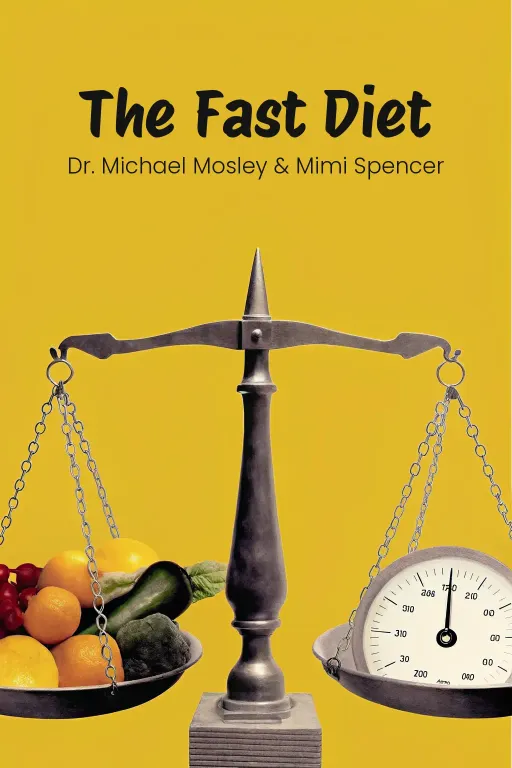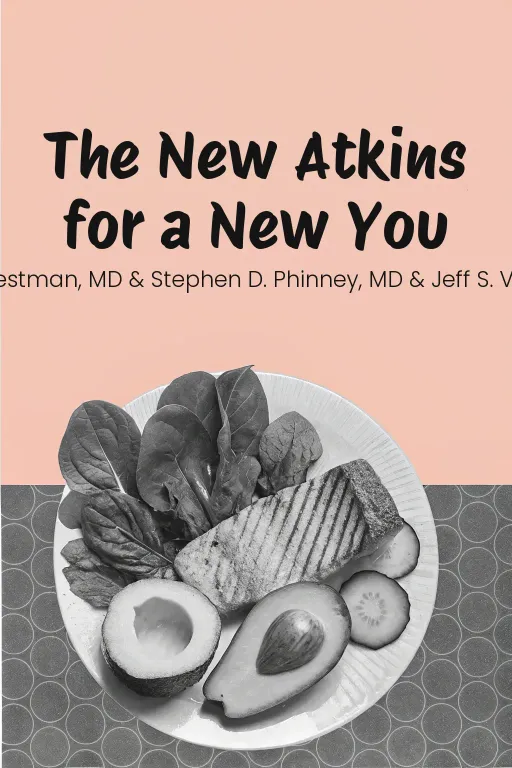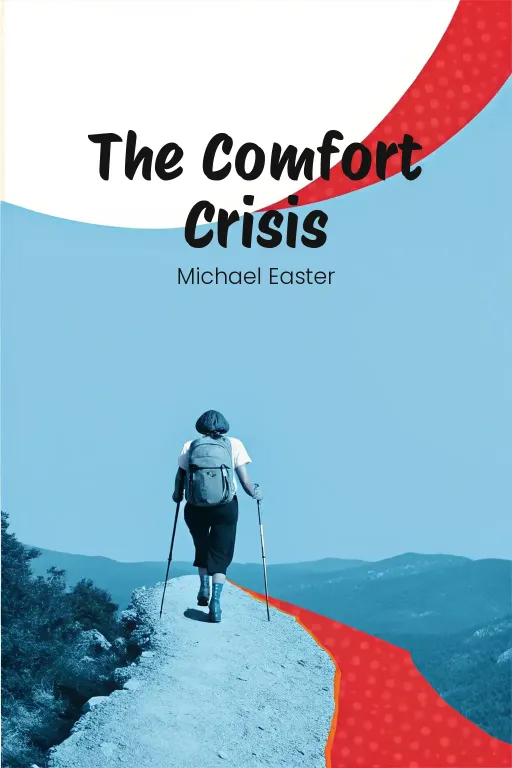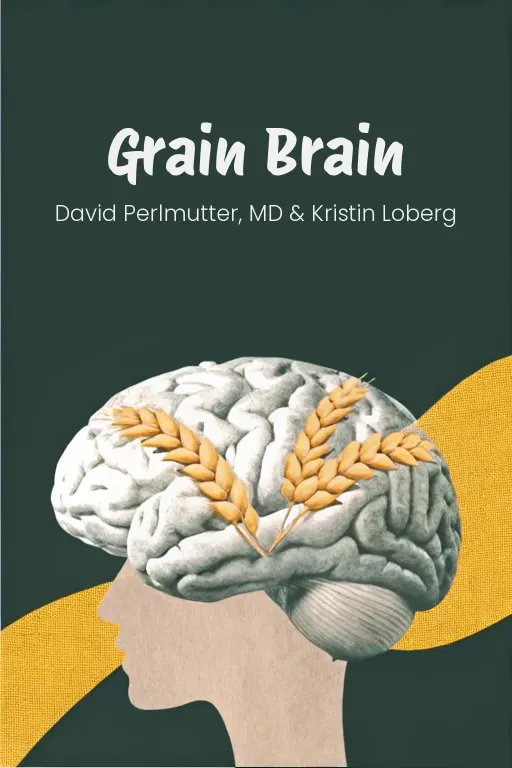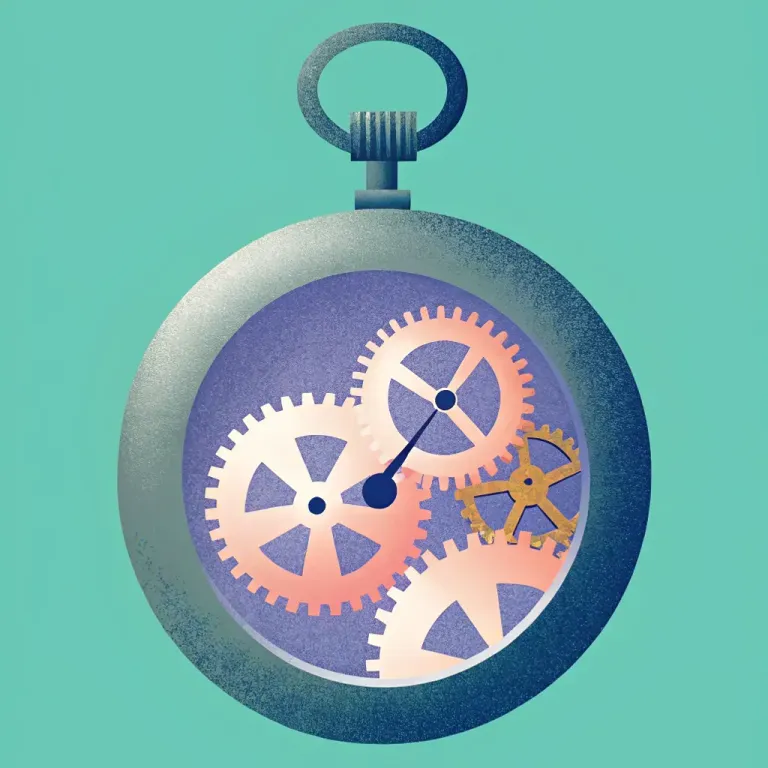
Fast to Focus: Hack Your Body Clock
Podcast by Beta You with Alex and Michelle
Lose Weight, Stay Healthy and Live Longer with the Simple Secret of Intermittent Fasting
Fast to Focus: Hack Your Body Clock
Part 1
Alex: Hey everyone, and welcome back to the show! Today we're tackling intermittent fasting, which is generating a ton of buzz. Imagine a lifestyle change that promises weight loss, improved focus, maybe even a longer lifespan... all just by changing when you eat. Pretty compelling, right? Michelle: Compelling, yeah—but also a little “too” good to be true, don't you think? You're saying I can eat whatever I want most of the week, barely eat a couple of days, and that's the key to fitness and focus? Color me skeptical; sounds like another fad diet with a science-y veneer. Alex: Well, hold on a second, Michelle. Fasting itself isn't some new invention. People have been doing it for, well, ages—out of necessity, or by choice. And this book really dives deep into the idea, especially the Fast Diet and that 5:2 model. The goal is to unlock some real health benefits by working “with” your body's natural rhythms, not fighting against them. Michelle: So, it's back to our hunter-gatherer days, but instead of hunting with spears, we have meal plans and case studies? Alex: Precisely! So, here's the plan for today: we're going to break it down into three parts. First, we'll look at the historical and biological basis for why fasting works—it's not just a trend, it's actually built into our DNA. Then, we'll explore how it can transform your health, and it's about way more than just weight loss. We're talking brain function, lifespan, the whole deal. And finally, we'll get practical with strategies to actually “make” this a sustainable part of our busy, modern lives. Michelle: Okay, so we're going from ancient survival instincts to prepping meals in advance. Got it. Let's see where this whole "feast or famine" thing takes us.
Introduction to Intermittent Fasting
Part 2
Alex: Exactly, Michelle. Understanding the roots of intermittent fasting helps us “really” see its value today. So, let’s start with the basics. We're not just talking about a fad diet here, but something deeply connected to our biology and history. Michelle: Okay, so we're talking about a journey from our hunter-gatherer ancestors to grabbing snacks at the gas station, all in one leap? What’s the connection? Why were we so well-adapted to fasting back then? Alex: It’s all about adaptation to feast-or-famine cycles. Early humans had periods of abundant food after a successful hunt, followed by scarcity. Our bodies evolved to efficiently store energy as fat, tapping into those reserves when food was scarce. So, fasting wasn't a choice, it was a necessity. Michelle: So, back then, fasting wasn't a lifestyle choice, it was just survival, right? No quick food deliveries, no choices, just pure survival. Alex: Absolutely. But it wasn’t just survival. Those fasting periods actually optimized biological functions. Today's studies show that fasting triggers cellular repair and fat metabolism, crucial for long-term health. Our bodies are built to benefit from these periods of fasting. Michelle: But the modern world completely flipped that script, didn't it? We went from occasional feasts to constant feasting. Three meals, snacks in between, treats and dessert. Alex: You nailed it. Our modern eating habits clash with our biology. Constant food availability has led to this culture of relentless eating. We've lost touch with our natural hunger cues, putting a lot of stress on our metabolism. Michelle: And some people still believe frequent “grazing” is healthier. Eat all day to stay fueled, they say. But isn't that just overloading our systems? Alex: Exactly. It keeps insulin levels high, which can lead to insulin resistance—hello obesity and diabetes. Fasting lets those insulin levels drop, encouraging your body to switch to burning stored fat for energy. It's kind of like hitting the reset button on your metabolism. Michelle: Okay, so it helps with weight loss. But in a world of constant food, fasting sounds like the ultimate buzzkill. I mean, who wants to skip meals willingly? Alex: Well, historically, fasting was more than just a survival tool. It had cultural and spiritual meaning. Major religions like Christianity, Islam, and Judaism incorporate fasting into their traditions. It’s not just about devotion, but also mental clarity and self-purification. Michelle: Interesting. So, it’s not just about an empty stomach, but also a clear mind. It’s like ancient mindfulness. Alex: Exactly. And those mental and emotional benefits are still relevant today. Advocates of intermittent fasting say it can help us rediscover mindfulness in our relationship with food. Instead of mindlessly eating out of stress or habit, you learn to eat with intention. Michelle: I get the mindfulness aspect, but let's get practical. You mentioned it aligns with our biology—how exactly? What's the science behind it? Alex: So glad you asked, because the science is fascinating. Fasting triggers a process called autophagy. It’s like a cellular spring cleaning. Damaged cells are broken down and recycled for energy. Think of it as your body’s natural detox system—no pricey juice cleanse needed. Michelle: That sounds impressive, but how does that connect to modern health problems like obesity or diabetes? Alex: The major link is how it regulates energy use. Constant eating leads to constant insulin production, which contributes to insulin resistance, weight gain, and inflammation. Fasting gives our bodies a chance to clear the excess and switch from burning sugar to burning fat, improving metabolic health overall. Michelle: So, while I'm trying to avoid snacks in the middle of the afternoon, my body is busy with its own internal cleanup? Alex: Precisely! And it doesn't stop at metabolism. Fasting supports cognitive function too. Studies show it activates brain-derived neurotrophic factor, or BDNF, which helps grow brain cells and improve neuroplasticity. Michelle: Does that mean I'll stop forgetting my keys if I start fasting? Alex: Well, maybe not immediately, but yes, fasting supports brain health and may even delay cognitive decline as we age. It’s also been shown to help regulate mood, potentially reducing symptoms of anxiety and depression. Michelle: Fascinating. So intermittent fasting could make me sharper, calmer, and thinner? It sounds too good to be true. Alex: I understand the skepticism, but the science is pretty solid. Fasting works in harmony with mechanisms our ancestors relied on to survive. What’s “really” cool is how it connects ancient wisdom with modern science. It’s not just about skipping meals; it’s about reconnecting with our biology and maybe even regaining control over how and why we eat. Michelle: You’ve definitely covered a lot here. From caveman survival to cellular cleanups and spiritual clarity—it’s a fascinating deep dive into fasting.
Benefits of Intermittent Fasting
Part 3
Alex: So, understanding the science behind intermittent fasting, getting to the core of how it works, really sets us up to explore the amazing effects it can have. Shall we dive into those benefits now? Let's start with what everyone “really” wants to know about: weight loss and metabolic health. Michelle: Ah, the power couple! I mean, isn't that what we all secretly hope for? So, how exactly does skipping meals beat out the usual torture of calorie counting? I'm picturing someone just miserably hungry while their body magically melts fat. Alex: It's maybe not quite that dramatic, but think of fasting as being strategic, not masochistic, you know? The real difference is that intermittent fasting isn't about constant calorie restriction, like most diets. Instead, it's about “time-restricted eating” or these periodic energy dips, which makes your body tap into its fat reserves for fuel instead of constantly relying on new calories coming in. Michelle: Okay, so instead of obsessively tracking every single thing I eat, fasting gives my body a chance to, like, manage its resources more efficiently. But if people are cutting calories this way, why aren't they constantly hangry? What stops them from just totally binging later? Alex: That's such a good question. Fasting actually helps to sort of reset your hunger hormones, like ghrelin, and also leptin, which signals when you're full. Over time, you just become more aware of your body's real hunger cues. Some studies even show a decrease in overall calorie intake because your body adapts. Michelle: Interesting. And there's actually solid data to back this, right? Because, you know, I need proof, not just good vibes. Alex: Absolutely. There’s tons of data available to support it. Studies have shown that people doing intermittent fasting have seen significant improvements in their BMI, less abdominal fat, and better waist-to-height ratios. And these aren't just about looking good; they mean lowered risk of things like diabetes, heart disease, and other metabolic issues Michelle: Okay, numbers are nice, but what about actual people? I mean, research is great, but has anyone actually taken this stuff and used it to change their lives? Alex: Totally! There’s one story that comes to mind, a participant who started intermittent fasting because they were struggling with weight and just felt generally unhealthy. Over time, they started noticing incredible changes—they lost visceral fat, which is that really dangerous kind around your organs, their body fat percentage dropped, and they had more energy. What's even more interesting is that they described feeling really good about their “fast days”, which completely changed how they thought about food. Michelle: I’ll admit, that’s pretty cool to hear. Okay, switching gears, I was surprised to hear about fasting and brain health. You mentioned something about BDNF and growing new brain cells? Explain how skipping lunch might actually help me win trivia night. Alex: It's all connected, Michelle. Fasting can actually boost the production of something called brain-derived neurotrophic factor, or BDNF. It's essential for neurogenesis, which is the creation of new neurons. So, higher levels of BDNF can improve learning and memory, and also help protect against diseases like Alzheimer's. Michelle: That's pretty wild. But is that just lab mice running through mazes, or are there actual signs this works in humans, too? Alex: Both, actually. Studies on mice have shown that fasting can delay cognitive decline, even in those who are genetically prone to memory problems. And while human studies are still ongoing, there's evidence that fasting correlates with better brain scans and memory performance. Plus, fasting kicks off autophagy—it's like a cellular clean-up process that reduces brain inflammation, which becomes more and more important as we age. Michelle: So it's not just about being sharp now; it's about long-term brain health, huh? But does this brain boost have a catch? Like, "This only works if you're eating nothing but kale and quinoa on your feeding days.” Alex: Good question, and you're partly right. Fasting is powerful, but pairing it with a nutritious diet amplifies the effects. There was a study where they found that a high-fat, high-sugar diet actually decreased the cognitive benefits of fasting. So what you eat still matters! Think balance: healthy fats, lean protein, and fiber-rich foods. Michelle: Got it. So fasting is great for my brain, but candy bars don't help. What about those big scary health conditions, like heart disease or cancer? Does fasting play a role there? Alex: Yes, it does. Take cardiovascular health, for example. Fasting can improve insulin sensitivity and lower fasting glucose levels, which are huge factors in reducing heart disease risk. When your body is constantly dealing with high insulin levels, it messes with metabolic pathways. Fasting gives your body a break, a chance to reset. Michelle: What about cancer risk? That feels more complicated—how does skipping a meal protect against cancer? Alex: It’s about what happens at a cellular level. Fasting reduces levels of something called IGF-1, a protein that's linked to uncontrolled cell growth. By lowering IGF-1, you encourage repair instead of just growth, which makes it harder for cancerous mutations to take hold. Some research shows that fasting before chemotherapy might protect healthy cells while making the cancer cells more vulnerable to treatment. Michelle: Wow. So, fasting isn't just avoidance; it could actually make treatments more effective. That's... pretty amazing. Alex: Exactly! And along with the physical benefits, there’s how transformative it can be mentally and emotionally. People describe feeling more clear-headed and even empowered when they fast. It helps them rebuild their relationship with food, so they focus more on nourishing their bodies instead of just eating mindlessly. It’s a huge psychological win. Michelle: I can see that. If you're not constantly eating because of stress or boredom, it's like you're taking back control in a world that's constantly pushing food at you. Alex: Precisely. There’s evidence that fasting may decrease anxiety and help build resilience to stress, you know, by changing the way our brains react. People often treat their fast days as chances to practice mindfulness, and that can impact all areas of their lives. Michelle: You know, to start, I kind of figured it was just another fad people were chasing. But now that I hear how it affects everything—the body, the brain, emotions—it's a much bigger deal than I thought.
Implementing the Fast Diet
Part 4
Alex: So, now that we've seen the benefits, let's dive into the practical side of things. We know why intermittent fasting works and how it impacts health, so how do we actually fit this into our everyday lives? We're focusing on making it work and making it stick, especially with the 5:2 model, you know, the Fast Diet. Michelle: Okay, Alex, I'm all ears. But you know I'm always skeptical about these things, especially anything promising long-term results. It has to survive the real world. So, where do we even begin? Do I just pick two days at random on the calendar and hope for the best? Alex: Not exactly. What's great about the Fast Diet is that it's flexible. Tailoring a plan to your life is key. For example, someone with a crazy work week might choose the weekends to fast when they have time to chill and plan their meals. Others might pick quieter weekdays, you know, to avoid social gatherings or family dinners. Michelle: So, there’s no one-size-fits-all here, right? Like, I could fast on Mondays and Wednesdays to avoid the office bagel fests, but Jerry from accounting could do weekends to dodge those temptations. Alex: Exactly! See, that’s the beauty of intermittent fasting. It fits your life instead of the other way around. Balance is super important, too. Fasting shouldn't feel like you're punishing yourself. On your non-fasting days, enjoy your favorite foods, but be mindful of portions, okay? Michelle: Wait a minute. Are you telling us to have cheat meals? What's the deal here? Alex: No deal, Michelle! The 5:2 model is all about balance. Eating normally, but moderately, on your regular days keeps you from feeling like you're missing out, which makes it easier to stick with the plan long-term. Someone even mentioned how they enjoyed special meals without feeling guilty because they realized fasting wasn't a punishment, but a way to stay healthy. Michelle: Okay, I get the balance part, but let’s talk about the actual meals. On a fasting day, it’s like 500 calories for women, 600 for men, right? What are they supposed to eat, like, a single carrot stick? Alex: Not at all! Meal planning is everything. Focus on foods that are full of nutrients and will keep you full. For women, a 500-calorie day might be Greek yogurt with berries for breakfast and grilled chicken with zucchini for dinner. Men could have a spinach and mushroom omelet and then salmon with asparagus, you know, a bit more. Michelle: Alright, that sounds doable. But aren't these fasting days still rough? I mean, how do people keep from raiding the fridge in the middle of the day? Alex: Yeah, hunger can be tricky in the beginning, but it's manageable if you eat low-GI foods that give you sustained energy. Oatmeal with berries or veggies that are high in fiber, like kale, will keep your blood sugar steady and help you avoid those hunger pangs. Plus, stay hydrated. Drink lots of water, herbal tea, or even black coffee to keep the hunger down. Michelle: That's a lot of work just to avoid a snack, don't you think? What if you’re hungry and all you have is water? Alex: That’s when mindfulness comes in handy. Try to see fasting days as a chance to think about your relationship with food. Hunger comes and goes, and we often make it a bigger deal than it is. Some people even say fasting days are like a mental and physical “reset,” you know? You really pay attention to what your body feels instead of just grabbing whatever’s nearby. Michelle: A reset, huh? So, instead of complaining about being hungry, you find perspective. Sounds like a mind shift. What about the energy crashes? No one wants to feel like a zombie. Alex: Yes, energy dips, those are common, especially in the beginning, but they don't last. Your body is just getting used to burning fat instead of carbs. Stay hydrated, and be patient with yourself. Also, doing light exercise, like walking or yoga, can fight fatigue and even lift your mood. Michelle: Yoga on an empty stomach? You want people to twist themselves into a pretzel when they can barely stand? Alex: It's not as extreme as it sounds! Moderate movement, like a walk or some stretching, helps distract you from the hunger while releasing endorphins. And, once your body adapts, you might even find you have more endurance during fasts because burning fat gives you a steady energy source. Michelle: Okay, I'll accept that, reluctantly. So, we're talking about smart eating, water, exercise, and thinking differently. But I'm worried about how sustainable this is. How do people keep fasting for the long haul? Alex: It all comes down to making it your own and keeping it enjoyable. Some people make meal planning a creative thing, exploring different spices or low-calorie meals. Others focus on the mindfulness aspect, appreciating the emotional benefits of eating with intention. It's not about doing it perfectly; it's about being consistent and finding what works. Michelle: You know, “design your own fasting adventure” makes this sound less intimidating. Maybe this isn’t just for, you know, those biohacking types with spreadsheets. Alex: Exactly! It's a practical, flexible lifestyle anyone can adopt. Whether you're doing it for your health, for mindfulness, or just for a new challenge, the Fast Diet can help you change how you think about food in a really positive way.
Conclusion
Part 5
Alex: Okay Michelle, so to bring it all together, we've really taken a deep dive into intermittent fasting today. From its ancient roots – which is pretty cool – to the science that backs up all the health benefits, plus, how to actually make it work in our daily lives. It’s amazing how it can kind of reboot our metabolism, sharpen our minds, and really change how we think about food. Michelle: Right, and it's not just about weight loss, is it? We're talking cellular cleanup, better brain function, and maybe even toughening up our defenses against diseases. Who knew skipping meals could be so… evolutionarily smart, and, dare I say, emotionally freeing? Alex: Exactly! Intermittent fasting is more than just another diet trend. It’s a chance to get back in sync with how our bodies are naturally designed to work, and cultivate a much healthier, more conscious relationship with food. And the beauty of it is, it's so flexible. You can tailor it to fit your own life. Michelle: So, whether you're after better metabolic health, laser-like focus, or just want to ditch some not-so-great habits, fasting hands you a tool to regain some control. Maybe it’s worth giving a try? And hey, even a skeptic like me can admit the need for a good reset now and then. Alex: Definitely. So our listeners should really think of this as a chance to pause and consider not just when you're eating, but why and how. Fasting isn't about deprivation; it's about reconnecting. Reconnecting with your body, your habits, and ultimately, your health. Something to consider, right? It might just be the change you're looking for.

